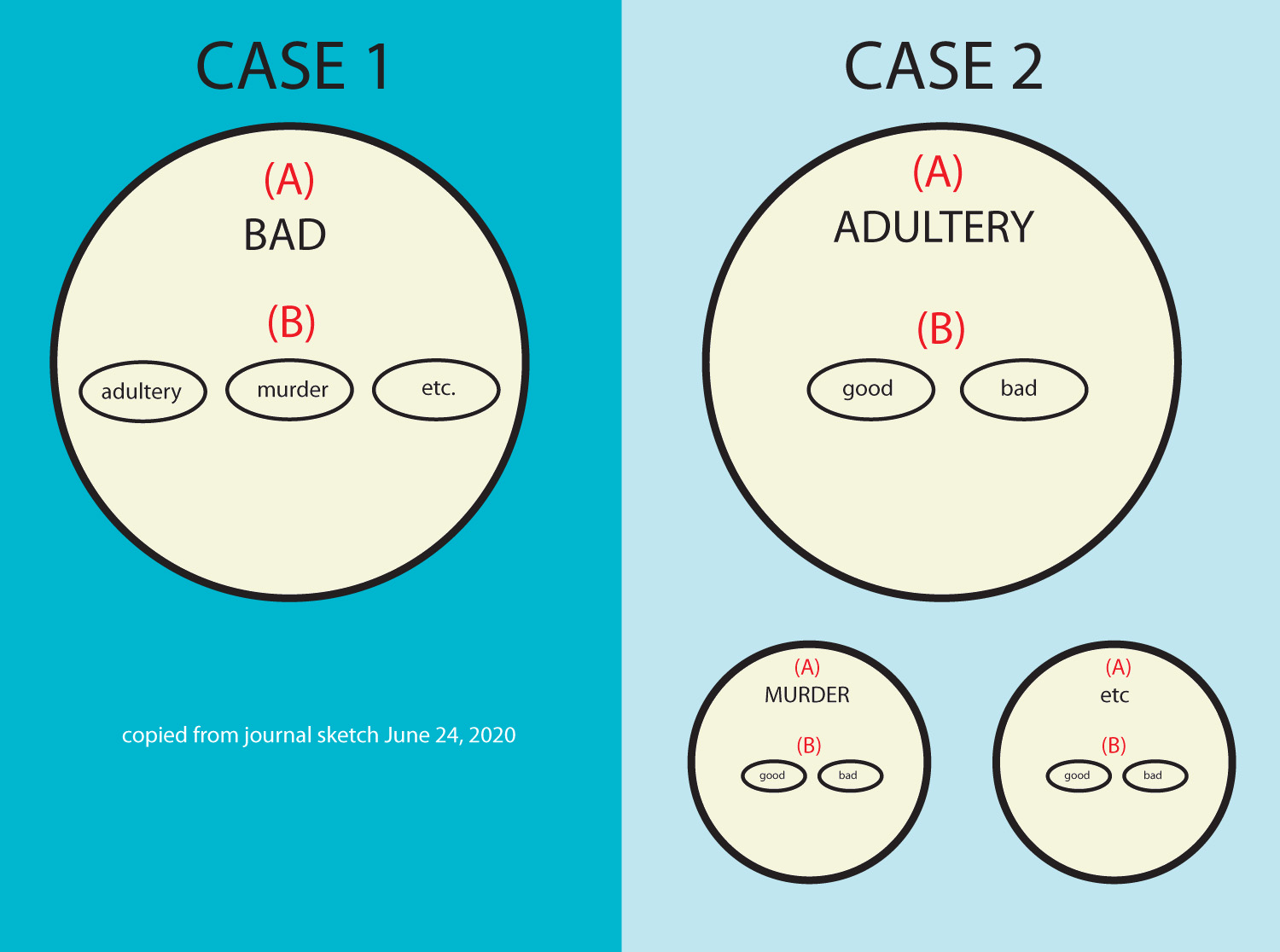 Index
Index 
Idea of "Other" Epistemology Morality
Imagination: What is the likelihood that two people share a common ancestor in each past generation? Fecundity -- Fertility Parameter: change in time (lookup) Usually unstated assumption that each woman who births has only one sperm contributor while married to one guy or perhaps even if not. An assumption I think valid because of uncertainty in the birth data AND population data overwhelm the uncertainty in fecundity due to multiple partners, which skews the “fecundity rate of a population” because it skews the count of the population to different numbers. I am still confused there because I can’t decide which population to count “total fathers” (which lowers the count) or “total reported fathers of each woman’s children” (the “data” which raises the count). Anyway, I suspect the “skew” to be less than 10% or so. Excellent compared to sire data before about 1850, so perhaps after good census and, later, birth records, the “bastard” parameter might make a small difference in transferring birth and census data to population genetics, like my question to start this discussion. I also suspect (>99%) that someone has answered that question quantitatively. That raises the question, “What do ‘I’ know vrs. What is ‘known’?” I use “known” in the passive impersonal sense to emphasize that “it” or “something” or “anything” MAY be known by someone or something else, but not by “me”, whatever “me” might be. There are lots of things like that, in fact an infinite amount of things that can be “known” by rules of logic and its handmaiden, mathematics, and I only know a few, a very few. I have known many things in the past like geometric proofs in eighth grade (which intrigued me and “drew me in”) and the ternary classification dividing numbers among potassium, sodium, and calcium feldspars. Each of these and many others could be “released” or “remembered” with much less effort than expended on the “first” learning. So, though I know many things, I have forgotten many more, and even together these are but a drop in the ocean compared to what is knowable, even by strict rules of logic. But what if I loosen the rules a little bit in pursuit of what I know, and include things that I (1) can, (2) have, and (3) do “imagine” as distinct (albeit across fuzzy boundaries). Fact is I can imagine infinite numbers represented by X=Y. So, again just for fun, let’s extend “knowing” to include such “kinds” of imagination. Further I will restrict the definition, at least here, to the knowledge “of” the content of the imagination, rather than the content itself. I “know” I have imagined I can fly. I can’t fly, at least not like I imagined. I know both as surely as I know anything. I have imagined flying and I know I have, and am even now imagining it again, and will probably imagine flying again in the future. In this way I “know” also there are many things imagined and forgotten; but as with “knowledge” they are easier to “re-imagine” thereby reinforcing my “memory” of that image. Is this also like other knowledge which might, as above, include what “can be” known, by myself or others following certain rules? Though I don’t think (wrong way to say it,really) the rules for imagining have been laid out as clearly as those for logic. I assume we all share the ability to imagine, and probably follow pretty much the same procedures, physical and mental if you prefer such a distinction: i.e. pretty much the same “rules”. By the way, I don’t know that; only that I thought it, imagined it. The content might be wrong but not the “knowledge” that I thought of it, which knowledge itself will soon fade to memory where it will mingle and stew with all other memories. Another imaging that, this time a metaphor -- form whose content, like flying, can never |
be true. Memories don’t stew in a pot. So are all those things that “can be” imagined by me or someone or something else are part of human ken, and therefore by my imaging of that, part of my ken too? WOW, that’s a lot, WAY beyond me. For Mark, chain of thought: last email: everyman ► all alike ► all have common ancestors ► I bet we share on in 5 to 10 generations ► opening question and ff. Euler Diagram Logic of Mathew 5: Adultery (my crime, so please excuse my bias)  If A then B in both Cases If Not A then Not B (Case 1: untrue, you can still be bad, just not an adulterer. If Not A then Not B (Case 2: true, for a particular instance of A, Which requires an “individual” thinking adultery is bad, but applies only to that individual. So adultery is bad only if it occurs and you think it is bad, and only for you who is doing the thinking. “Judge not, lest ye be so judged”. |